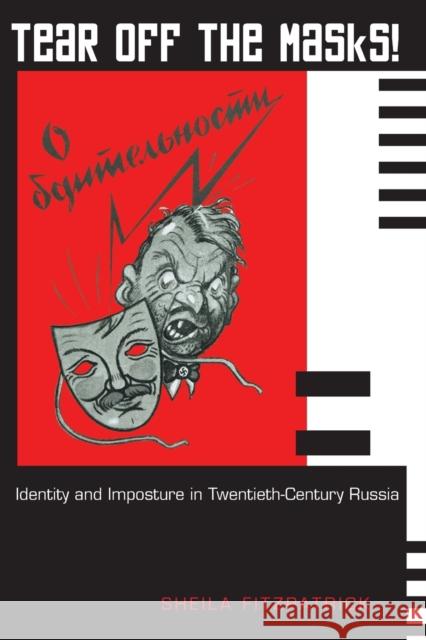Tear Off the Masks!: Identity and Imposture in Twentieth-Century Russia » książka
Tear Off the Masks!: Identity and Imposture in Twentieth-Century Russia
ISBN-13: 9780691122458 / Angielski / Miękka / 2005 / 352 str.
When revolutions happen, they change the rules of everyday life--both the codified rules concerning the social and legal classifications of citizens and the unwritten rules about how individuals present themselves to others. This occurred in Russia after the Bolshevik Revolution of 1917, which laid the foundations of the Soviet state, and again in 1991, when that state collapsed. Tear Off the Masks is about the remaking of identities in these times of upheaval. Sheila Fitzpatrick here brings together in a single volume years of distinguished work on how individuals literally constructed their autobiographies, defended them under challenge, attempted to edit the "file-selves" created by bureaucratic identity documentation, and denounced others for "masking" their true social identities.
Marxist class-identity labels--"worker," "peasant," "intelligentsia," "bourgeois"--were of crucial importance to the Soviet state in the 1920s and 1930s, but it turned out that the determination of a person's class was much more complicated than anyone expected. This in turn left considerable scope for individual creativity and manipulation. Outright imposters, both criminal and political, also make their appearance in this book. The final chapter describes how, after decades of struggle to construct good Soviet socialist personae, Russians had to struggle to make themselves fit for the new, post-Soviet world in the 1990s--by "de-Sovietizing" themselves.
Engaging in style and replete with colorful detail and characters drawn from a wealth of sources, Tear Off the Masks offers unique insight into the elusive forms of self-presentation, masking, and unmasking that made up Soviet citizenship and continue to resonate in the post-Soviet world.











